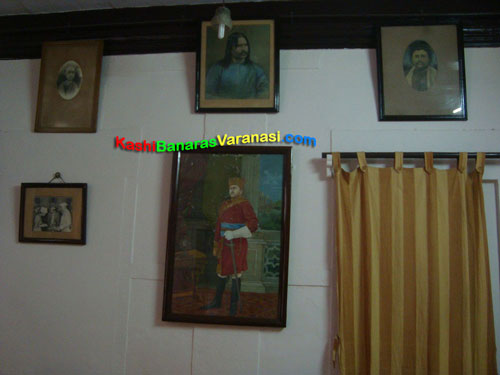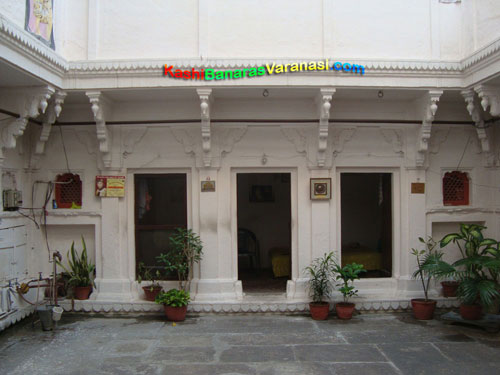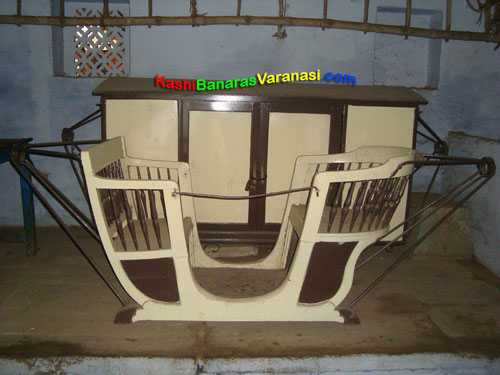Bharatendu Harishchandra Biography
Bharatendu Harishchandra, the father of the modern Hindi literature and the Hindi theatre, was born in the Benares at 9th September in the year 1850. After serving a lot for the modern Hindi literature for 35 years, he died at 6th January in the year 1885. He was a recognized poet for his great works and renowned as one of the supreme Hindi writers, novelists and playwrights of the modern India.
He was the master in the several languages like Bengali, Gujarati, Marathi, Marwari, Punjabi etc. It is considered that he had started composing poetry at his 5. He always tried to represent the India’s poverty, sufferings of the people, human need and dependency, cruel exploitation and the middle class conflictions through his great writings such as the journalism, several dramas, essays, poetry and short stories. He also sketches his thoughts for the development of the country. He has created new literature by focusing on the old literatures. He always wrote by his pen name, the Rasa.
His father name was Gopal Chandra who was also a great poet. His father was writing poetry by his pen name, Girdhar Das. Bharatendu Harishchandra could not live with his parents more, as they died in his young age, but they leave their deep influence on him. Bharatendu Harishchandra had very small family, a daughter only. His granddaughter named Pratibha Agarwal was also a Hindi writer and she founded the Anamika theatre group in the Kolkata.
He has completed his Jagannath Temple yatra in Puri at his 15, with his family in the year 1865. This yatra is related to his life very deeply as he got much influenced by the Bengal renaissance and he made certain that he would bring the reality of the social, historical as well as puranic plays in his writings. Three years later, he wrote the Bengali drama renowned as the Vidyasundar.
He has edited his many writings and magazines. Some of his editions are, he edited the Kavi Vachan Sudha in 1868 and Harishchandra Magazine, Bal Vodhini, Harishchandra Patrika in 1873. His many writings show the history of the Agrawal community (as he was the member of the Chowdhury family related to the Agrawal community of the Kashi).
Career:
After the death of his father, he engrossed himself entirely towards the Hindi literature and tried to give his best contribution by his better writings in order to develop the Hindi literature. He has started to introduce his mind’s new concepts and thoughts while writing the Hindi prose as well as drama which was later considered as the pioneer of innovative Hindi writing of the modern age.
His great contribution towards the Hindi literature is through his immense writings in form of prose, poetry, journals, drama, translations, etc. He has worked as an editor in the variety of magazines such as the Kavi Vachan Sudha, Harishchandra Magazine and Patrika as well as Bal Vodhini. Through his editorship, his efforts were recognized very clearly to a great extent towards the development of the Hindi language. At that time he was bestowed with the title of ‘Bharatendu’ publically in the year 1880. People have given him a lot of respect by bestowing him with the title of ‘Bharatendu’.
He is recognized as a beginner of the new era of the Hindi literature, which made him able to be the owner of the title ‘Father of Modern Hindi Literature’. He was proved as a very energetic person of his era. He was always full of enthusiasm and unlimited courage for his grand works which were the reasons to succeed him till his end of life. Although he is never die to the lovers of the Hindi literature.
Some of his great writings are:
Drama:
- Vaidik Hinsa Hinsa Na Bhavati in 1873.
- Sahitya Harishchandra in 1876.
- Bharat durdasha in 1875.
- Satya Harishchandra.
- Chandrawali in 1881.
- Shri Chandrawali in 1876.
- Prem Yogini.
- Dhananjay Vijay.
- Mudra Rakshas.
- Neeldevi in 1881.
- Andher Nagari in 1881.
Bharatendu Harishchandra Andher Nagari
Bharatendu Harishchandra has written his great political drama in 1881 named, The Andher nagari (means the city of darkness). This drama is the most popularly played drama of the modern Hindi drama. He did hard work for completing this writing which has been translated by many writers in many languages.
Bharatendu Harishchandra Poems
- Prem Tarang in 1877
- Prem Malika in 1871
- Prem Maduri in 1874
- Raag Sangraah in 1880
- Varsha Vinod in 1880
- Bhagat Sarvagya
- Prem Fulwari in 1883
- Prem Srowar
- Holi in 1879
- Madhu Mukul in 1889
- Prem Pralap in 1877
- Danlila
- Pholoo ka Guchha in 1882
- Vinay Prem Pachassa in 1889
- Krishna Charitra in 1883
- Bakari Vilap
- Bandar Sabha
- Sumnanjali
- Sake of Mother Tongue (has ten couplets)
- Uttarardh Bhaktmal between 1876 and 1877
- Bhaktsarvasva in 1870.
- Geet Govindanand in 1877-78.
- Raag Sangrah in 1880.
- Varsha Vinod in 1880.
Translations:
- Karpoor Manjari from Prakrat.
- Harsha Ratnavali, Visakhadattas Mudra Rakshasa and Vidya Sundar from Bengali.
- Durlabh Bandhu from Shakespeare’s Merchant of Venice.
Journals:
- Kavivachan Sudha
- Balabodhini Patrika
- Harish Chandra Chandrika
- Hagwadbhaktitoshini
Essay:
Bharatendu Granthawali in 1885.
Bharatendu Harishchandra Award
The Information and Broadcasting Minister of the India bestowed the Bharatendu Harishchandra with the awards in 1983 in order to encourage his unique writings in Hindi. The director Prasanna has written the book ‘Seema Paar’ on the Bharatendu Harishchandra for the National School of Drama representative.
Timeline:
- 1850: Born on 9th September.
- 1865: His visit to Puri with family and inspiration by Bengal Renaissance.
- 1868: Translated Vidyasundar to Hindi from Bengali.
- 1880: Bestowed with the title of ‘Bharatendu’.
- 1881: Has written great political drama named, The Andher nagari.
- 1983: Bestowed with awards.
- 1885: Died on 6th January.
Photos:
 This is the photo of the residence of the Bharatendu Harishchandra where he was born and lived till his death.
This is the photo of the residence of the Bharatendu Harishchandra where he was born and lived till his death.
 Courtyard of his home showing nice room in front. This is the two storey building of old style.
Courtyard of his home showing nice room in front. This is the two storey building of old style.
 Tam Jham of Bhartendu Harishchandra
Tam Jham of Bhartendu Harishchandra
Related Information
